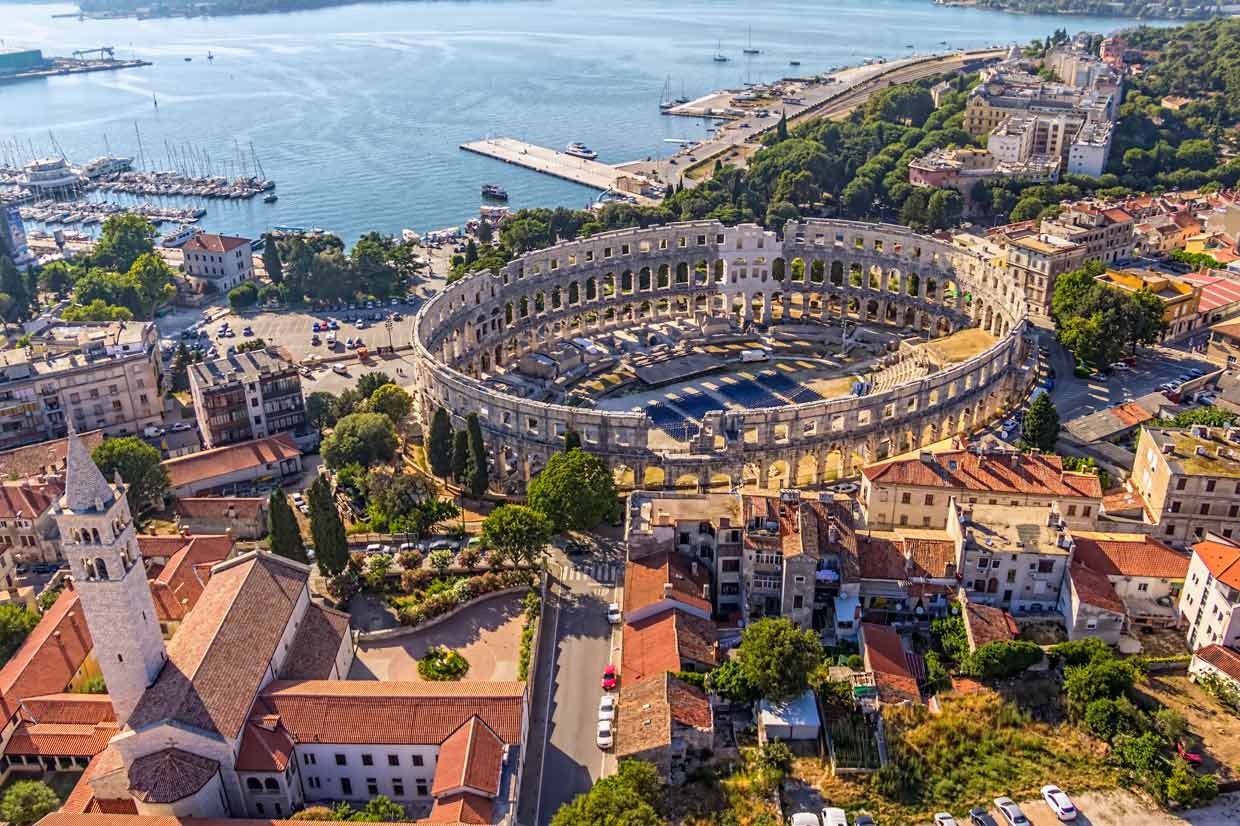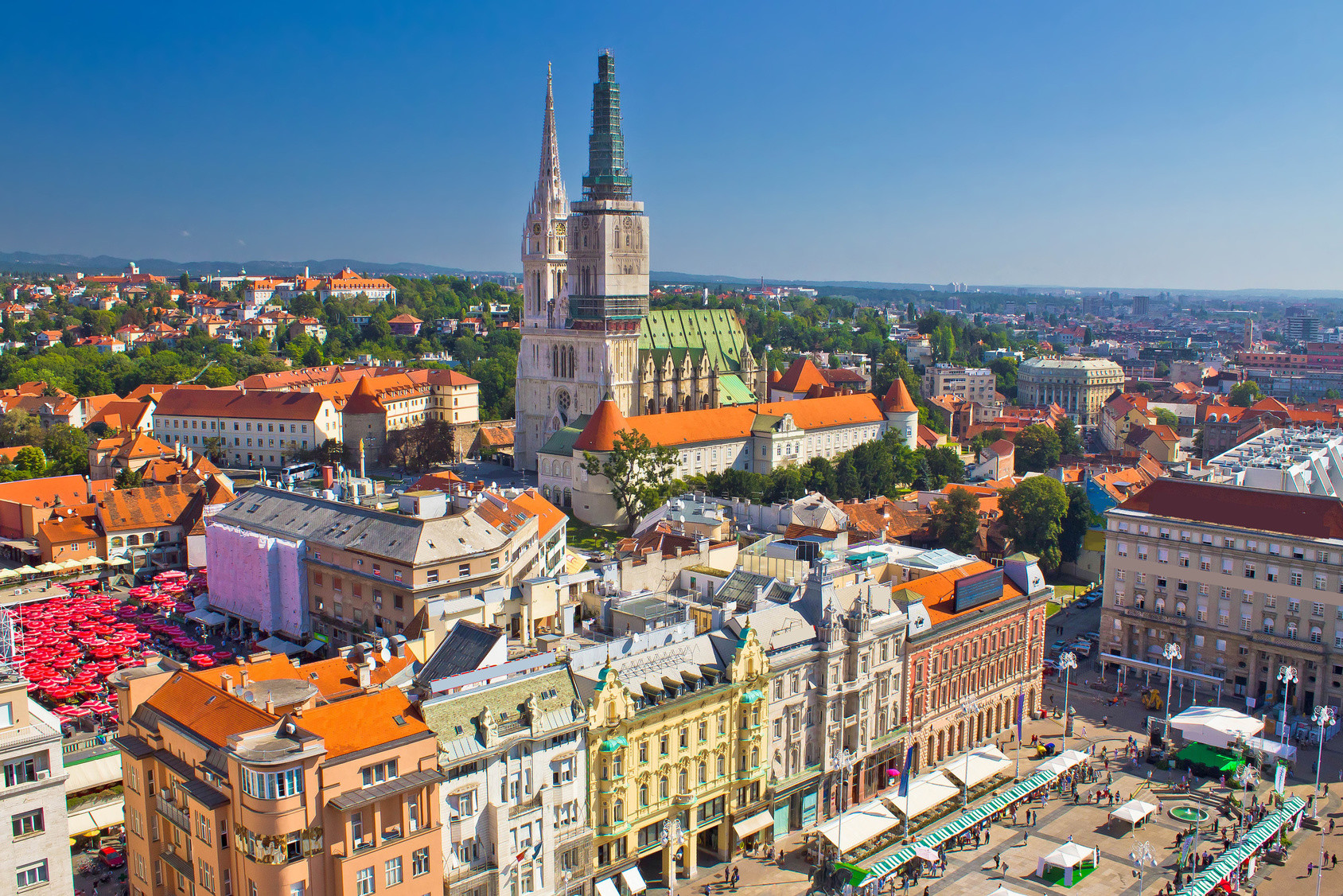A few things about culture and society in Croatia. Part 1
Hi everyone, today I'm going to tell you a little bit about what Croats are like, insofar as our cultures are both moving onwards together. As is the case in every country, the collective national character is subject to a wide variety of nuances, differences between regions and historical legacy. With its capital being inland capital and most big cities being on the coast, Croatia finds itself torn between a central European mentality in Zagreb and the north of the country (as shown by the generous plates of meat served there, the Austrian-esque architecture and the great interest placed on personal progress over and above pleasure); and a more relaxed, Mediterranean mindset on the coast. The population of Istria, bilingual in Italian and Croat, has a large Italian influence, whereas the Dalmatians tend to be calmer and more relaxed - many offices close at 3 in the afternoon, letting their employees enjoy the long sunny days at the beach or in some open-air café. Most people employed in the tourism industry speak German, English and Italian, but English is the language most spoken by young people there.

Most Croatians largely identify with Western Europe and they like to think of themselves as more Western than their neighbours to the East, the Bosnians and the Serbs. The idea that Croatia is the last frontier in Europe before reaching the Ottoman East is a popular one throughout all parts of the population, but this is a questionable notion if you bear in mind the immense popularity of Serbian Turbo-folk music in Croatia. Turbo-folk is a genre of music which was condemned and avoided during the war in the 1990s, but whose popularity grew as tensions decreased, to the point where elements of a Balkan union are now welcomed by some parts of Croatian society. Croatia's membership of the EU is generating mixed feelings. Most people seem enthusiastic, but much like other countries there are Anti-Europeans as well. Predictably based on what I saw, it is the younger generations which are more enthused by the recent integration, whereas the older generations lament the loss of industrial and agricultural independence, seen as an inevitability upon joining.
When speaking about themselves, the Croats often use the word "normal" in sentences such as "We want to be a normal country". Locals draw a distinction between nationalists and those who simply want to live in peace. Attitudes towards the patriotic war vary from one region to another. The destruction of Vukovar, the bombing of Dubrovnik and Osijek and the ethnic cleansing of and by the Serbs in Krajina have all traumatised the surrounding areas, where it would probably be hard to find support for any notion contrary to one saying that the Croats acted correctly and that the Serbs were entirely at fault. However, in other parts of the country, Croats seem more open to discussions around the events of the last decade.
Croats are united by a common religion - Catholicism. That being said, other minority religions do have a presence there - Islam, Serbian Orthodoxy etc.

Croats like the good life, and they love to keep up appearances. They usually put time aside to show off their clean houses and they wear elegant clothing. Even in times of economic difficulties, people will likely cut down on trips to restaurants or cinemas in order to be able to go to Italy or Austria to buy new clothes.
Spending a large part of the day in cafés and bars is an important element of life in Croatia. Someone just passing through might wonder how the country can work with so many people there doing nothing instead of working, but then might think back to Españistan (a short film detailing some of the causes of Spain's recent economic troubles), click their fingers and sit back down, understanding everything.
Most people own their own property, purchased after the communist era when previously state-owned property was sold to tenants at rock-bottom prices. It is seen as perfectly normal that adult children carry on living with their parents. In more rural areas and in small towns, this tradition extends particularly to male children, who often bring their wives into their family home where they will all live together. Family is very important to the Croats, and links with the family clan tend to be strong.
Although attitudes are slowly changing with regards to homosexuality, the vast majority of the population of Croatia is Catholic, and so their stance on sexuality is a conservative one. According to a recent survey, only 58% of participants considered homosexuals to be "normal people with a different sexual orientation". The rest saw it as a perversion. There are now many homosexuals still yet to come out for fear of harassment.
Let's hope that this last point changes as time goes on; for now, we'll carry on dissecting Croatian culture and society soon.
Photo gallery
Content available in other languages
- Español: Cosillas sobre la sociedad y cultura croata - parte 1
- Italiano: Cose sulla cultura e la società croata. Parte 1.
- Français: Précisions sur la société et la culture croate - 1ère partie
- Polski: Kilka słów o społeczeństwie i kulturze chorwackiej, część 1
- Português: Curiosidades sobre a sociedade e cultura croata 1
Want to have your own Erasmus blog?
If you are experiencing living abroad, you're an avid traveller or want to promote the city where you live... create your own blog and share your adventures!
I want to create my Erasmus blog! →





Comments (0 comments)